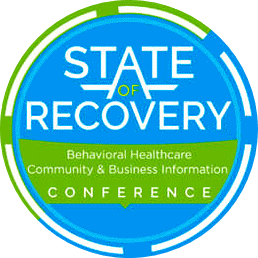 "The substance abuse treatment and behavioral health fields have grown and expanded at unprecedented rates in the past 5-8 years. Much of this is due to federal legislation including the Parity Act and the Affordable Care Act. Also impacting the field are the significantly increased rates of heroin and opiate use and concomitant overdose deaths associated with their use. All have led to an increase in interest in the substance abuse treatment field both by those in this field and notably, by those previously outside of our field. This, in turn, has led to a swell of new business partners and business practices. Our field now has the attention of investors, marketers, media experts, advertisers, diagnostic laboratories, pharmacogenomics experts, design groups, billing and patient management companies as well as therapists, counselors, nurses and physicians…"
"The substance abuse treatment and behavioral health fields have grown and expanded at unprecedented rates in the past 5-8 years. Much of this is due to federal legislation including the Parity Act and the Affordable Care Act. Also impacting the field are the significantly increased rates of heroin and opiate use and concomitant overdose deaths associated with their use. All have led to an increase in interest in the substance abuse treatment field both by those in this field and notably, by those previously outside of our field. This, in turn, has led to a swell of new business partners and business practices. Our field now has the attention of investors, marketers, media experts, advertisers, diagnostic laboratories, pharmacogenomics experts, design groups, billing and patient management companies as well as therapists, counselors, nurses and physicians…"
Dr. Charles B. Nemeroff, chairman of the psychiatry department at UHealth — University of Miami Health System, agrees with Hemingway’s assessment on the pervasive stigma against depression-related issues. “It’s robust in many ways,” he says. “We have this fabulous cancer center at UM. It’s so successful in raising money for research. But compare the amount Sylvester can raise compared to what we can raise in psychiatry — it’s a mere fraction. Strokes and Parkinson’s are brain diseases. So is depression. What’s different? They’re both above-the-neck diseases. We still fight this tremendous stigma.”According to the Centers for Disease Control and Prevention, suicide is the 10th-leading cause of death for Americans — “the only cause of death in the top 10 that’s increasing, not decreasing,” Nemeroff says. A member of the board of directors of the American Foundation for Suicide Prevention, he attributes misconceptions about depression and suicide to a variety of factors, including poor insurance reimbursements for mental health care and an ongoing lack of funding and research. Raising awareness, he says, is key, which is why any celebrity to speak out about the subject is helpful.
“Patty Duke was one of the first. Carrie Fisher has done it. Jane Pauley. There’s a local actor here in Miami, Gabrielle Anwar [of “Burn Notice”] who has followed in Mariel’s footsteps and was able to speak about her own issues with depression,” Nemeroff says. “They say you can’t solve a problem by throwing money at it. But yes, you can. Look at AIDS.”
 I get a Nemeroff alert every month or so. They’re usually like this – something that gives him a chance to say depression is brain disease, and something about money. I usually just let them pass, but this one caught my eye because of the State of Recovery Conference. What was that about? The quotes above make it crystal clear. It’s a gathering of business entrepreneurs looking to capitalize on the funds now available from the Affordable Care Act and the Parity Act by getting into the behavioral health business [if there’s any discussion of quality of care in there, I missed it]. It’s all about business opportunities [written in dense business-ese].
I get a Nemeroff alert every month or so. They’re usually like this – something that gives him a chance to say depression is brain disease, and something about money. I usually just let them pass, but this one caught my eye because of the State of Recovery Conference. What was that about? The quotes above make it crystal clear. It’s a gathering of business entrepreneurs looking to capitalize on the funds now available from the Affordable Care Act and the Parity Act by getting into the behavioral health business [if there’s any discussion of quality of care in there, I missed it]. It’s all about business opportunities [written in dense business-ese].In my mind, I call such people carpet·baggers, borrowing the name for the entrepreneurs that flooded the South after the Civil War. At least in the Southern mythology, they were exploiters who were motivated more by greed than anything like Reconstruction. And that is certainly how I saw this State of Recovery Conference reading their web site. We already have something like that in the area where I live – public mental health services delivered by a private contractor. They are constantly changing their program to fit the guidelines from the State [depending on what they will pay for]. So I often see their patients in waves when there has been a policy change that extruded some group of them. They use a telepsychiatrist [or telepsychiatrists – a different one every visit], responsible for some of the egregious examples of overmedication I’ve mentioned in these pages. Sometimes they do the right things, but it’s hit or miss.
I already use that term [carpet·baggers] in my mind when I think about the group of highly placed psychiatrists we call KOLs. Academic Medical Departments have always been largely self supporting. About the same time that traditional sources of funding [public psychiatry, private hospitals, state and federal government training grants, etc] dried up, the neoKraepelinian movement in psychiatry took hold as a reform movement. Came then a new breed who were willing to sign on with the pharmaceutical industry, and natural selection did what it always does. In this case, the surviving fittest were the ones who could [and would] negotiate Institutional Grants, land Pharma’s Clinical Trials, and author their publications. It was something of a perfect storm – the basis for what we now call the Academic·Pharmaceutical Complex, home to the KOLs.
To paraphrase a colleague, there was a time when chairmen and academicians were great teachers, researchers, ethical role models, AND able administrators [including fund raising]. When the pharmaceutical money began to flow, the fund raising skill predominated and here we sit. The academic journals have suffered the same fate. As funding [subscriptions] disappeared, advertising and sales of reprints became a new revenue stream. So, like with the carpet·baggers among the service providers [eg State of Recovery Conference], the Academic·Pharmaceutical Complex is proving to be very resilient because there is yet no solid untainted alternative funding source for academic programs or journals.

I would tend to pay attention to the conference sponsors. None of them are pharmaceutical companies but a collection or healthcare organizations, attorneys , and most interestingly the Joint Commission. The conflict of interest here is of course financial but what does the Joint Commission have a stake in? I would argue it is to maintain a disproportionate influence in health care. Many authors believe the Joint Commission was at ground zero for the current opioid epidemic and they blew it. And here they are at a conference that focuses on recovery.
The other interesting dynamic that is never covered is the obvious business angle and public relations aspect of both the politics and business of healthcare management as opposed to the provision of health care. There is no doubt that these companies make money by RATIONING access to healthcare and there are no more rationed services that mental health and substance use services. In my opinion the Parity Act and the Affordable Care Acts have done nothing to improve access to these services. We still have utilization review, prior authorization and now we have the added twist of state agencies that act like managed care companies and administer services from within bloated and incompetent Human Services departments.
Sometimes the simplest evidence of this widespread scandal is the best. There is no better example than no more access to detox services for addicts and alcoholics. And no – increasing access to buprenorphine prescribers is NOT a solution. We are at the point where the majority of people know someone who died either directly from addiction or a lack of appropriate detox services. Solving that problem might is more difficult than saying you are solving it.
http://bit.ly/2alj7hn
Collabo-care were certainly get shoehorned into this monstrosity. Lieberman just obviously pushing for that future dystopian attraction when he made that horrible video a couple of years ago.
And every one of these physician participants probably would have thought all of this to be extremely unethical when they were thirty. Well, after reviewing the names again, I’ll change that to “most”.
It’s hard to imagine anything less “neuroprotective” than a psychiatrist not seeing his or her patients.
“will” not were…autocorrect has me spoiled
Nemeroff: “We have this fabulous cancer center at UM. It’s so successful in raising money for research. But compare the amount Sylvester can raise compared to what we can raise in psychiatry — it’s a mere fraction. Strokes and Parkinson’s are brain diseases. So is depression. What’s different? They’re both above-the-neck diseases. We still fight this tremendous stigma.”
If I’m reading this correctly, Nemeroff is invoking “depression as a brain disease” to combat the stigma faced by psychiatry.
Ironic that this post uses the phrase by Nemeroff of cancer, Nemeroff is the cancer here.
Money is just another excuse to prey on people.
Anyway, glad your comment thread is working.